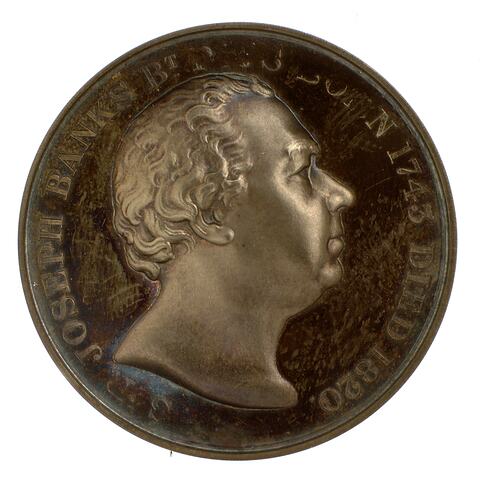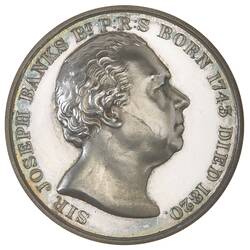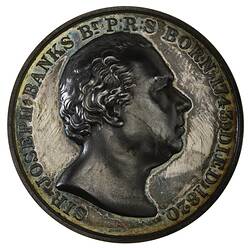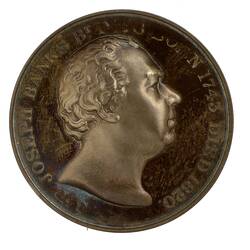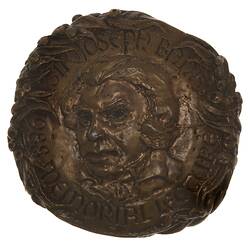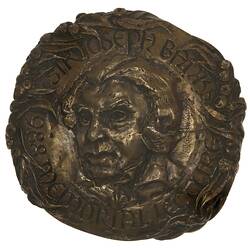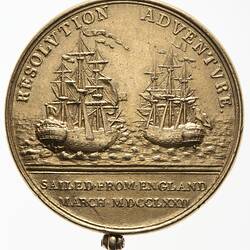Joseph Banks was born in 1743, the only son of a wealthy land-owning family. Educated at the University of Oxford, Banks did not graduate but had a strong interest in natural history, and in particular botany. When he inherited his family's fortune in the early 1760s he pursued this passion to the full, setting out on the first of many long voyages of discovery. In 1766 he travelled to Newfoundland and Labrador on H.M.S. Niger to collect plants, animals and rocks. He was elected a Fellow of the Royal Society in the same year.
Two years later he joined Captain Cook's 1768-71 expedition to Tahiti on the Endeavour for astronomical observations. They made collections and observations in South America, Tahiti and New Zealand before reaching Australia. They landed on the eastern coast of Australia at Botany Bay (28 April - 5 May 1770) and at the Endeavour River (17 June - 3 August). Banks collected botanical specimens enthusiastically. His concern that the specimens would spoil did not prevent the identification of some 110 new genera and 1300 new species.
After his triumphant return home, Banks travelled to Scotland, Wales, Holland and Iceland to collect more specimens. He also managed to run his estates, undertake sheepbreeding and farming, control the Royal Botanic Gardens, Kew, and serve as a Trustee of the British Museum. In 1778 he also became President of the Royal Society, an office which he held until his death in 1820. He was knighted in 1781.
When the British government was casting about for a place to establish a penal colony, Banks advocated Botany Bay. After the settlement was established at Sydney Cove, he encouraged further investigation of the natural history of the area and became the authority on matters relating to New South Wales. His impact on the study of natural history in both Britain and Australia was resounding.
Although Linneaus' suggestion of naming the new country 'Banksia' was not adopted, his name was bestowed upon a genus of Australian plants, several Australian plant species, and Australian place names including Bankstown, New South Wales.
References:
Bright Sparcs web site http://www.asap.unimelb.edu.au/bsparcs/biogs/P000037b.htm
Australian National Botanic Garden web site http://www.anbg.gov.au/biography/banks.biography.html
More Information
-
Keywords
-
Localities
Botany Bay, New South Wales, Australia, Oxford, England, United Kingdom, Tahiti, South America, Scotland, United Kingdom, Wales, United Kingdom
-
Authors
-
Article types
